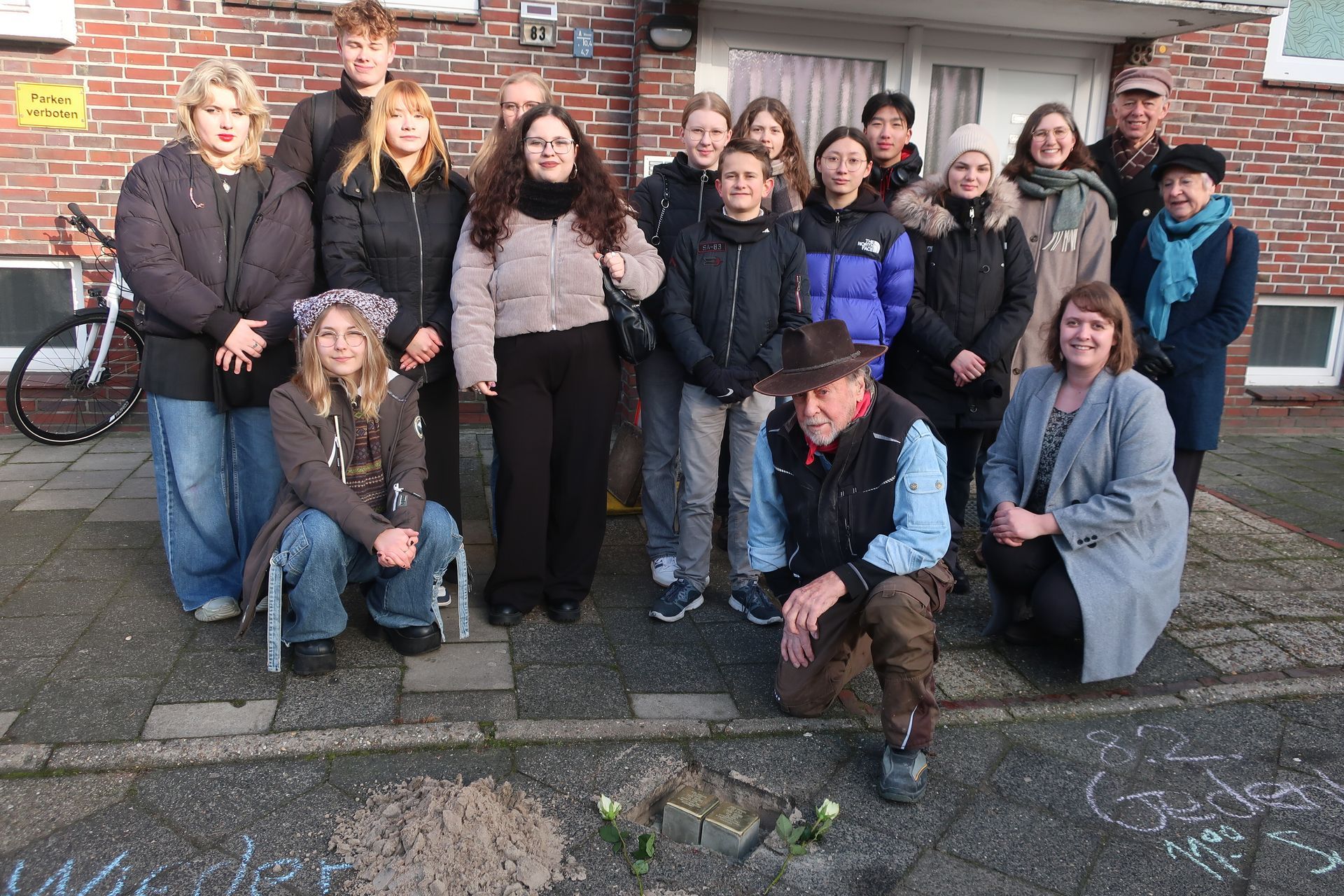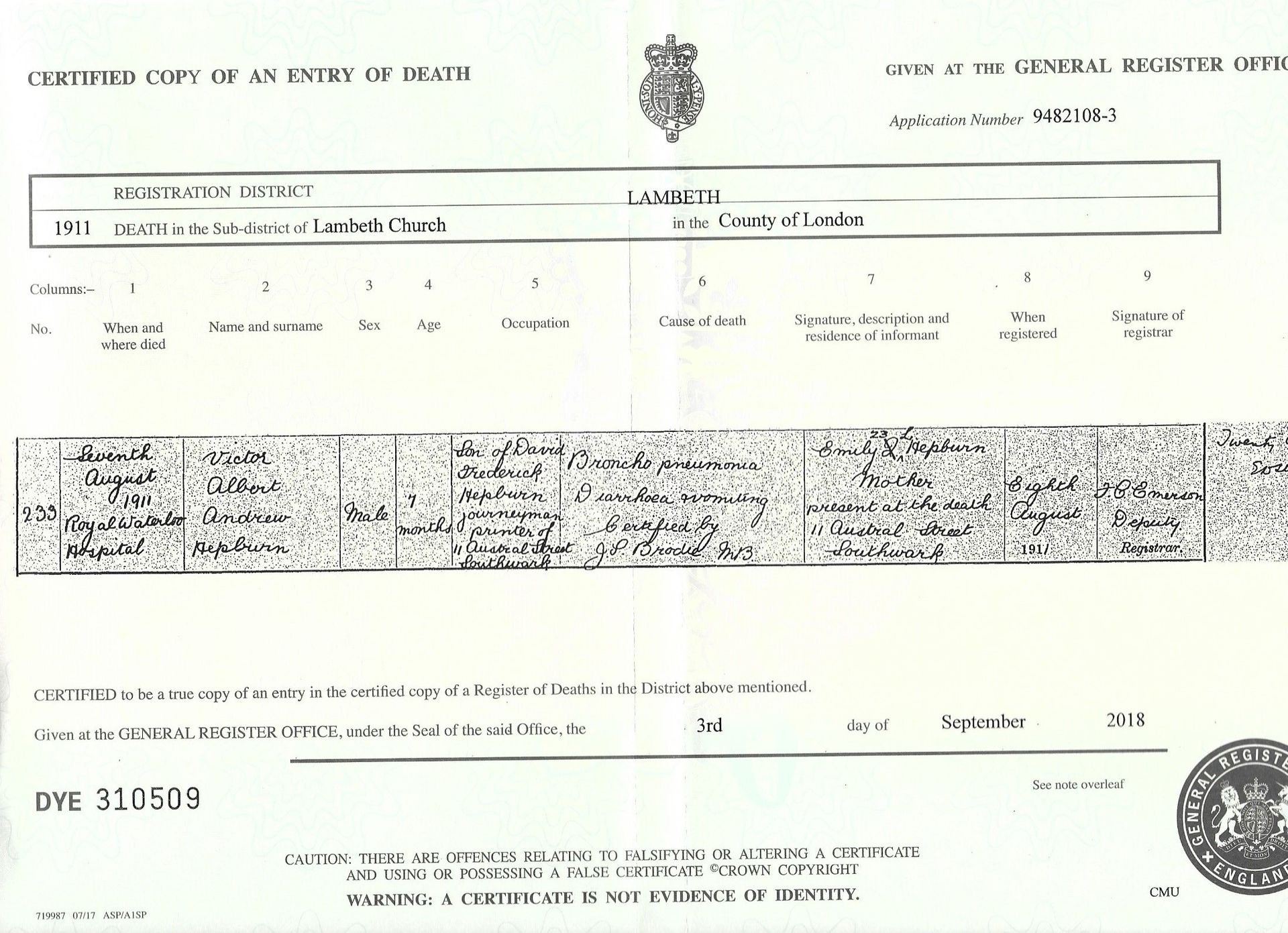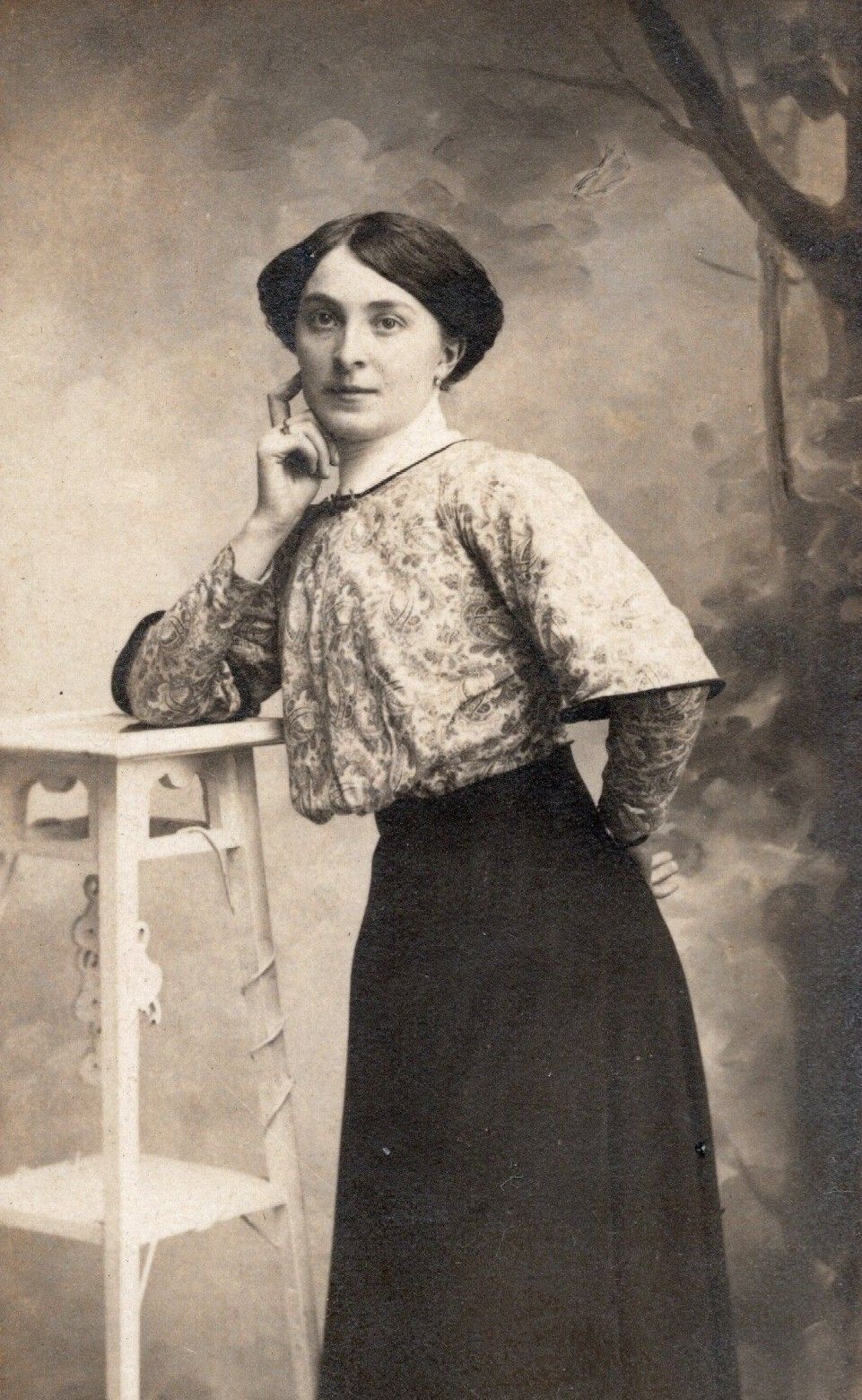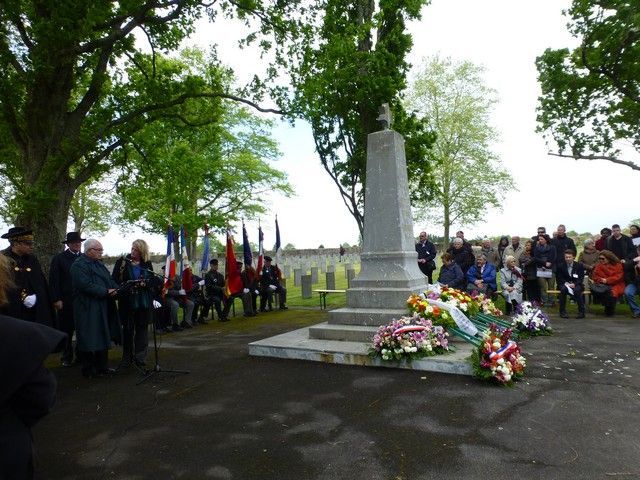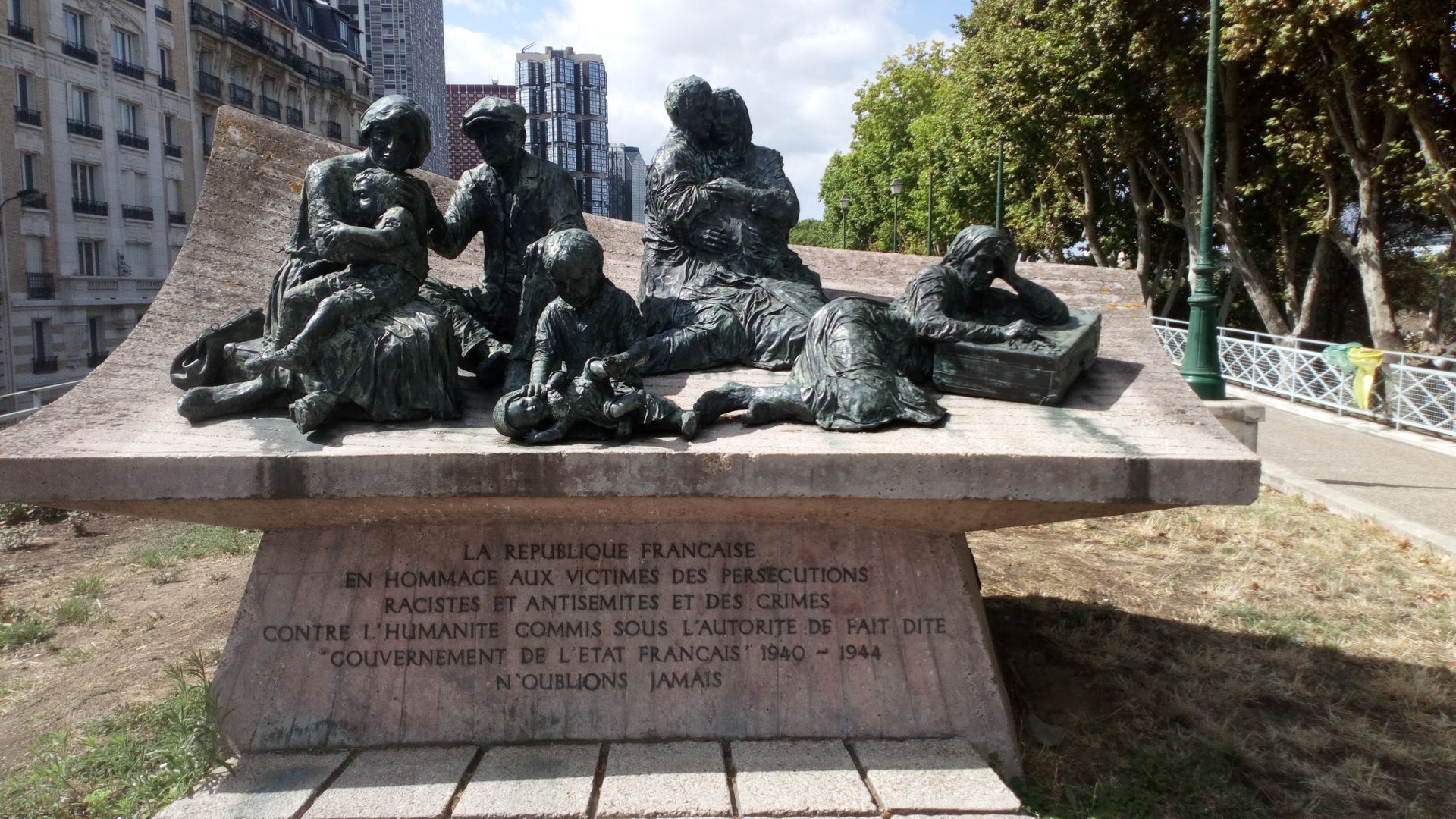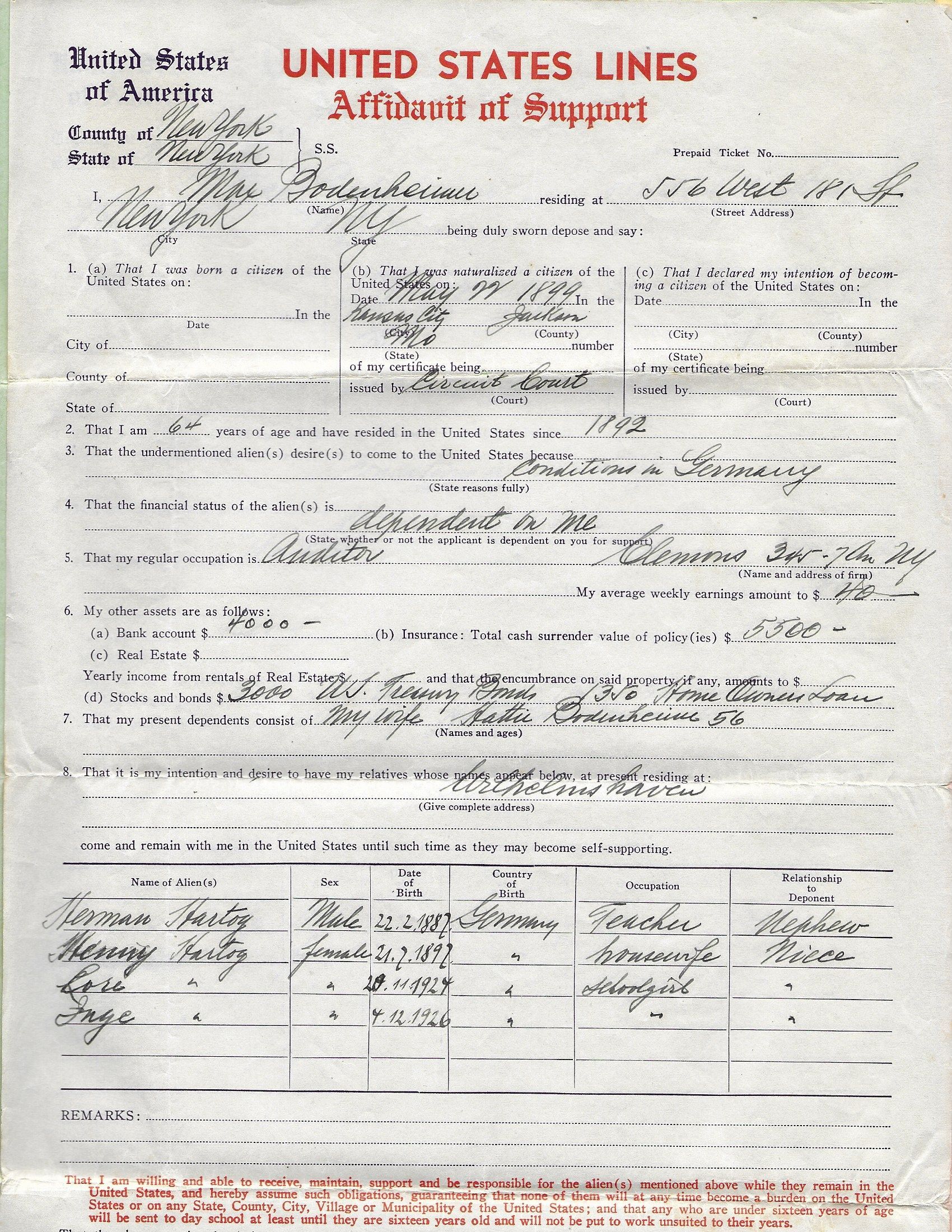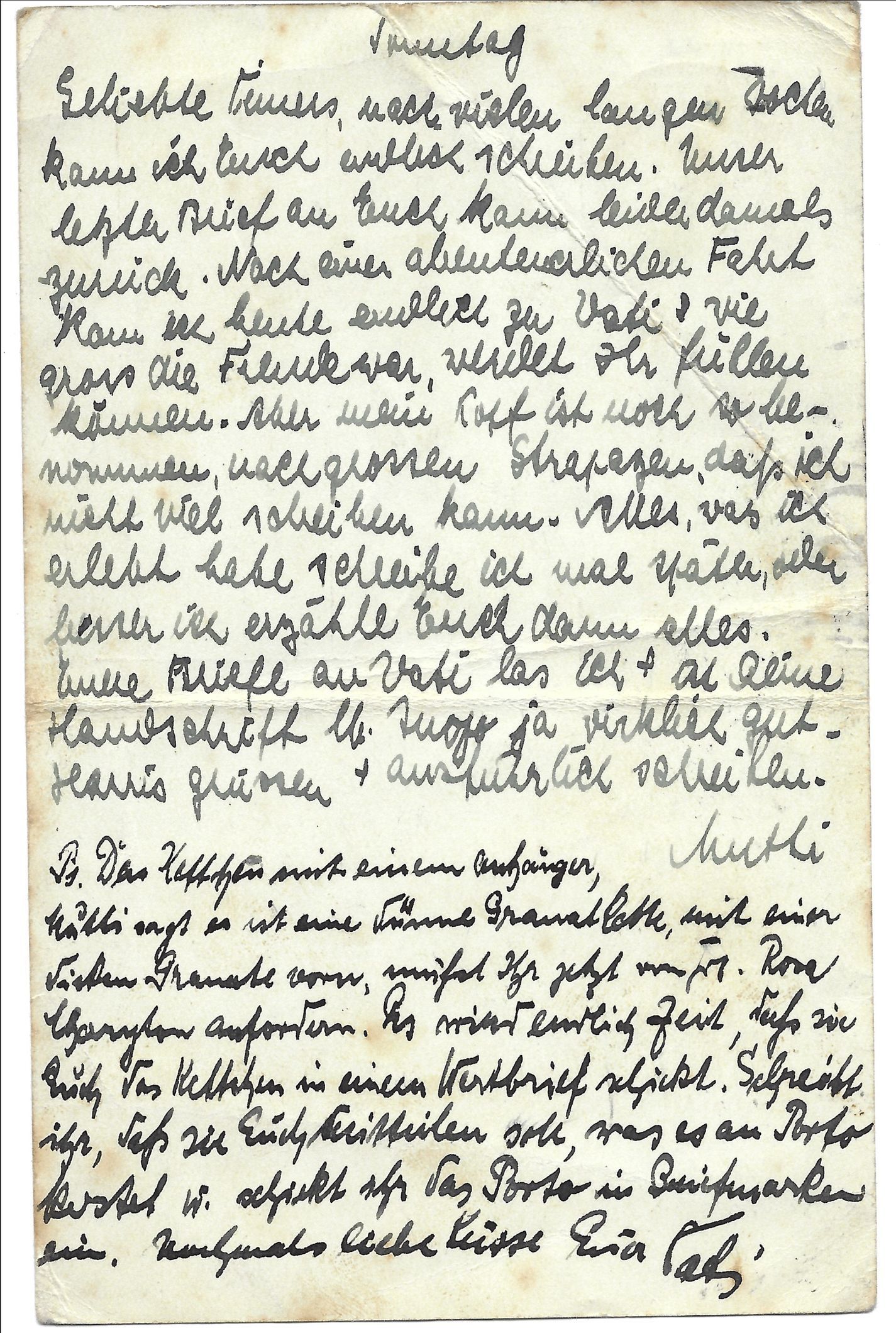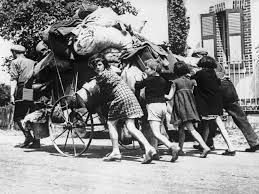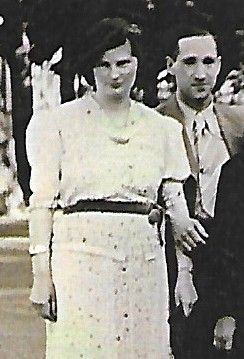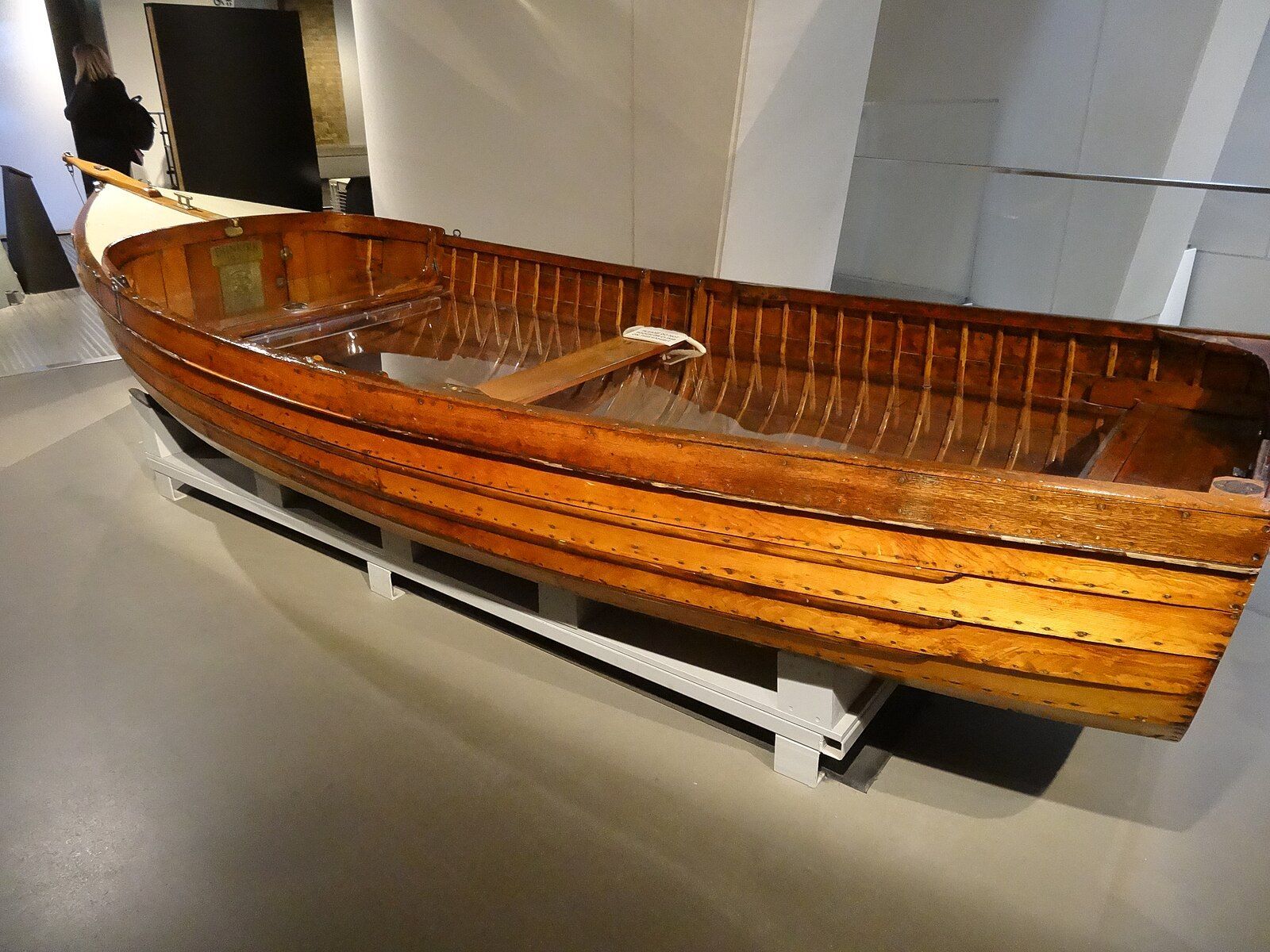Two Jewish women in internment June 1940
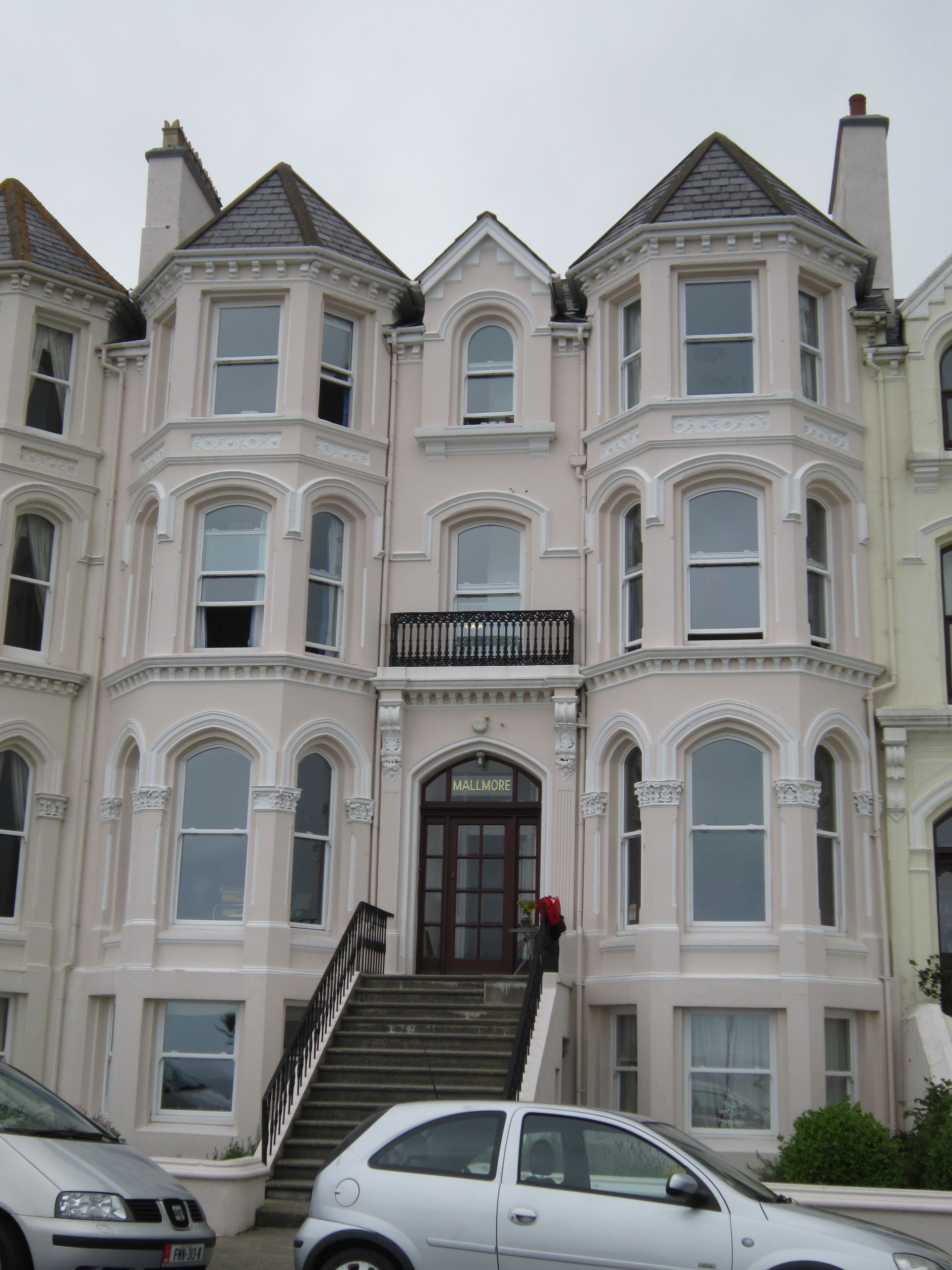
Two very different Jewish women, who never knew each other but who had both fled Nazism in Germany, found themselves interned in June 1940.
Beate Sulzbach was 43 years old and had been living as an emigré in London for just two years when she was arrested and interned – first in Holloway Prison and then on the Isle of Man. She married Herbert Sulzbach in 1923 and during the 1920s she enjoyed her professional life as an actress in the Expressionist theatres in Berlin. She had no children.
Henny Hartog was 42 years old and had been living as an emigré in Brussels for only seven months when she was arrested and interned – first in Paris and then at Camp de Gurs in south-west France. She married Hermann Hartog in 1921 and was his support and home-maker while he worked as a Jewish teacher and cantor in synagogues in north-west Germany. They had two young daughters who had been sent to safety in England.
For both women, the rapid advance of the German army in May 1940, followed by the fall of Belgium, the Netherlands and then France brought confusion, alienation, and threat to their lives. There were people throughout western Europe who believed that the speed of the attack had only been possible because of insider help. A very public outcry was raised that there must be spies everywhere. Suspicion was directed first at any people of German origin. It was seen as irrelevant that those same people had themselves fled the regime in Germany, and had been either targets of that regime or fighting against it.
Fear and distrust were intensified by the actions of national newspapers that whipped up hatred and xenophobia amongst their readers. For both Beate in London, and for Henny in France, this was a frightening, bewildering, and extremely upsetting time. Their husbands were interned at the same time as them – but in separate places. Neither of them knew their whereabouts for several weeks.
Beate stayed in Holloway prison for four weeks before being transferred to Port St Mary on the Isle of Man. There, she was under house arrest in a large boarding house with several other women, required to share this space (and also her bed) with a complete stranger. She was released eight months after her initial arrest. She tried to find beauty and positivity in her experience and wrote to her husband,
'We can walk, and walk without seeing any barbed wire. My boarding house is by the beach. I am sitting in the window and looking over the sea and the sun is shining.'
Henny stayed in Camp de Gurs for over four weeks until her husband found her after his own release. They were then both given refuge in a nearby village where they lived under house arrest for the next two years until they were deported to Auschwitz. Henny tried to stay strong and positive throughout her experience, writing to her daughters,
'Now we are in a little village in the mountains near the Spanish border. We are together with other refugees and we are in good health.'
Beate survived internment and the war largely because she had found refuge with the victorious nation. Henny was murdered in September 1942 because the French government collaborated with their German occupiers to deliver the required quota of Jewish people to the extermination camps and she was included in that number. Both were victims of the racism, intolerance, and cruelty of those times.
(photo shows the boarding house where Beate was interned on the Isle of Man)
